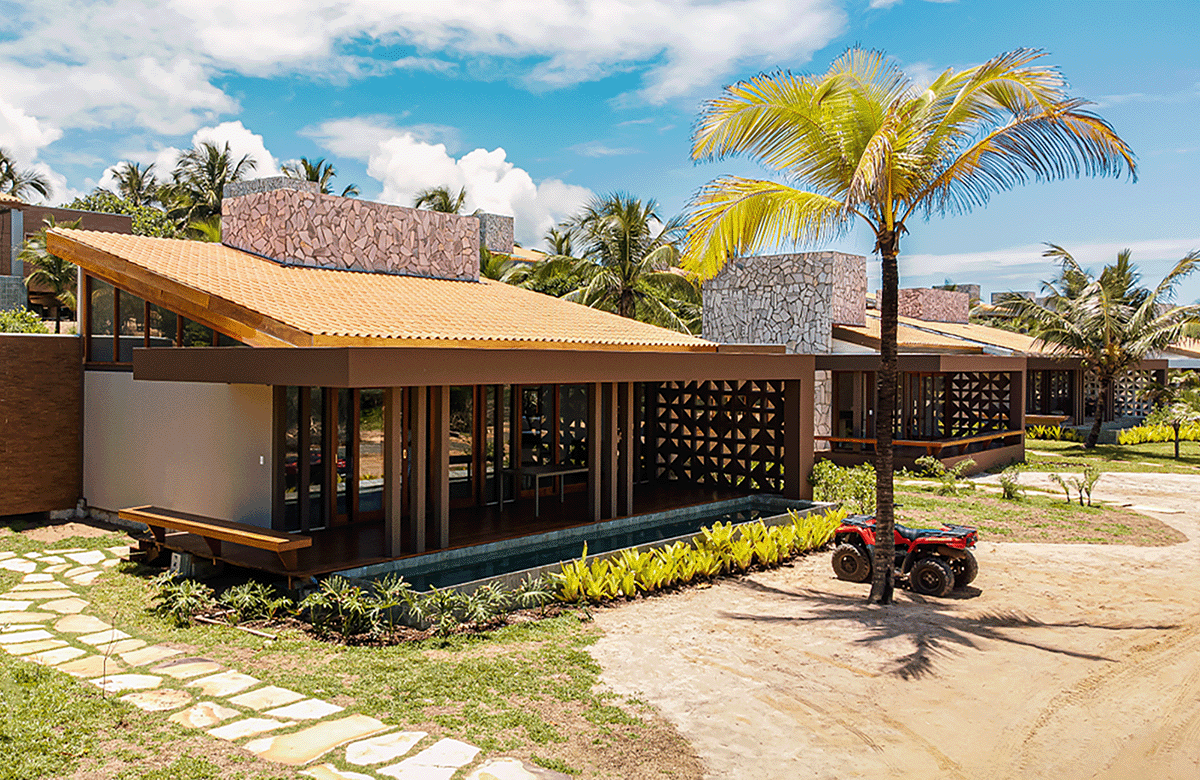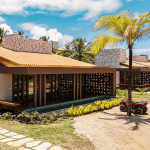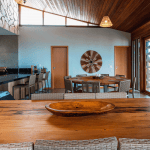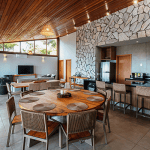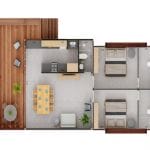Alma Marau
Company: CMC Modular
Affiliates: Architects Adriana Machado, Botanist Ricardo Cardim, F2 Construction
Location: Maraú, State of Bahia, 45520-000, Brazil
Gross Size of Project: 43,000 Square Feet
Days to Complete: 914
Award Criteria
Architectural Excellence
Designed by Adriana Machado and botanist Ricardo Cardim, Alma Marau is a sustainable vacation complex comprising 40 modular homes in a 430,000 sqf. area. Committed to positively contribute to the environment and the community, each house was meticulously positioned to harmonize with native species of flora and fauna. The landscaping is enriched by centuries-old species and added elements, such as a turtle hatchery and blooming flowers, that embody the true identity of the Brazilian soul. Modular construction was essential to minimize the environmental impact on the land. Careful planning was undertaken to facilitate the staging and transportation of local trees during the construction process. Despite these challenges, the project offers four unique layouts of houses, all boasting breathtaking sea views. The houses showcase a combination of industrialized steel structure modules and intricate local wood details, emphasizing the fusion of modernity and traditional craftsmanship.
Technical Innovation & Sustainability
Every aspect of this project was crafted to reduce harm to the environment. Including relocating 6,500 native species for construction and returning them, while also establishing a nursery for their care during the transition. Special lighting was chosen to aid turtles in finding their hatchery spots through moonlight. The development is the first in the state of Bahia to implement 100% selective waste collection, directing it to a registered landfill. A self-sustaining biodigester sewage system allows treated water reuse in the gardens. The steel structure underwent additional fire and corrosion treatment to extend its life cycle, and the only crane used in installation was carefully positioned to minimize movement. Sturdy packaging was necessary to transport 119 modular units of various sizes across 2000 km of rough terrain. For this reason, the materials selected for the project were carefully chosen to ensure a lightweight structure and minimize material waste, including water.
Cost Effectiveness
In Alma Marau, the true "luxury" of the project is embodied in the "Brazilian Soul" of the development. The impressive natural beauty was accentuated by preserving native vegetation through the creation of a green nursery, resulting in a $400,000 savings in the landscaping project. Long-term savings were achieved using durable enveloping materials and the integration of technology for water and waste recycling. These outcomes were accomplished through the collaboration of various stakeholders and the early integration of the design team and project management. This allowed for the seamless planning and execution of critical activities, enabling the use of only one crane during installation and smart handling and staging of modules. Remarkably, 20 houses were installed in just 14 days. Modular construction proved to be the optimal solution due to the challenging site access, limited availability of skilled labor, and the need for high-quality materials and items.
Green Building
The developers of Alma Marau envisioned a paradisiacal project in Brazil, known for its incredible biodiversity, without cutting down any trees or harming native species. The result is the relocation of 6,500 native species during construction, with a nursery established for their care in compliance with environmental legislation. No trees were cut on a 40,000 m² plot of land; instead, the house's position was adjusted to protect a centuries-old Gabiroba tree. Selected structural and enveloping materials were chosen to enhance the houses' life cycle. Aligned with the Zero Waste Institute, the project uniquely directs 100% of waste to a registered landfill. Reusable water from the biodigester sewage system irrigates gardens. A portion of its revenue is consistently allocated to support social and environmental projects, including two local schools. Notably, the project safeguards turtles and their nesting sites through a dedicated nursery and wildlife-friendly lighting.
See More Awards of Distinction Winners
To view all our current honorees, visit our main Awards page.

